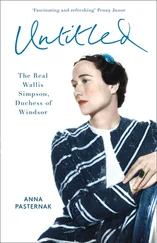It was in 1935 that Pasternak first spoke of his intent to fulfil his artistic potential by writing an epic Russian novel. And it was to my grandmother, his younger sister, Josephine Pasternak *, that he first confided his ideas at their last meeting at Friedrichstrasse station in Berlin. Boris told Josephine that the seeds of a book were germinating in his mind; an iconic, enduring love story set in the period between the Russian Revolution and the Second World War.
Doctor Zhivago is based on Boris’s relationship with the love of his life, Olga Vsevolodovna Ivinskaya, who was to become the muse for Lara, the novel’s spirited heroine. Central to the novel is the passionate love affair shared by Yury Zhivago, a doctor and poet (a nod to the writer Anton Chekhov, who was also a doctor) and Lara Guichard, the heroine, who becomes a nurse. Their love is tormented as Yury, like Boris, is married. Yury’s diligent wife, Tonya, is based on Boris’s second wife, Zinaida Neigaus. Yury Zhivago is a semi-autobiographical hero; this is the book of a survivor.
Doctor Zhivago has sold in its millions yet the true love story behind it has never been fully explored before. The role of Olga Ivinskaya in Boris’s life has been consistently repressed both by the Pasternak family and Boris’s biographers. Olga has regularly been belittled and dismissed as an ‘adventurous’, ‘a temptress’, a woman on the make, a bit part in the history of the man and his book. When Pasternak started writing the novel, he had not yet met Olga. Lara’s teenage trauma of being seduced by the much older Victor Komarovsky is a direct echo of Zinaida’s experiences with her sexually predatory cousin. However, as soon as Boris met and fell in love with Olga, his Lara changed and flowered to completely embody her.
Historically both Olga and her daughter, Irina, have received a bad rap from my family. The Pasternaks have always been keen to play down the role of Olga in Boris’s life and literary achievements. They held Boris in such high esteem that for him to have had two wives – Evgenia and Zinaida – and a public mistress was indigestible to their staunch moral code. By accepting Olga’s place in Boris’s life and affections, they would have had to further acknowledge his moral fallibility.
Shortly before she died, Josephine Pasternak told me furiously: ‘It is a mistaken idea that this … acquaintance ever appeared in Zhivago .’ In fact, her feelings for ‘that seductress’ were so strong that she refused to ever sully her lips with her name. She was in denial, blinded by her reverence for her brother. Even though in Boris’s last letter to her, written on 22 August 1958, he tells his sister that he hopes to travel in Russia ‘with Olga’, underlining the importance of his mistress in his life, Josephine would not acknowledge her existence. Evgeny Pasternak, Boris’s son by his first wife, was more pragmatic. He may not have liked Olga, displaying little warmth towards her, yet he was more accepting of the situation. ‘It was lucky that my father had the love of Lara,’ he told me shortly before he died in 2012, aged eighty-nine. ‘My father needed her. He would say “ Lara exists, go and meet her .” This was a compliment.’
It was not until 1946 that fate intervened, when Boris was fifty-six years old. As he later wrote in Doctor Zhivago , ‘From the bottom of the sea the tide of destiny washed her up to him’. It was at the offices of the literary journal Novy Mir that he met thirty-four-year-old Olga Ivinskaya, an editorial assistant. She was blonde and cherubically pretty, with cornflower-blue eyes and enviably translucent skin. Her manner was beguiling – highly strung and intense, yet with an underlying fragility, hinting at the durability of a survivor. She was already a dedicated fan of Pasternak the ‘poet hero’. Their attraction was mutual and instant, and it is easy to see why they were drawn to each other. Both were melodramatic romantics given to extraordinary flights of fantasy. ‘And now there he was at my desk by the window,’ she later wrote, ‘the most unstinting man in the world, to whom it had been given to speak in the name of the clouds, the stars and the wind, who had also found eternal words to say about man’s passion and woman’s weakness. People say that he summons the stars to his table and the whole world to the carpet at his bedside.’
Having become fascinated with my great-uncle’s love story, I feel passionately that if it were not for Olga, not only would Doctor Zhivago never have been completed but it would never have been published. Olga Ivinskaya paid an enormous price for loving ‘her Boria’. She became a pawn in a highly political game. Her story is one of unimaginable courage, loyalty, suffering, tragedy, drama and loss.
From the mid-1920s, as Stalin came to power after Lenin’s death, it was established that communism would not tolerate individual tendencies. Stalin, an anti-intellectual, described writers as the ‘engineers of the soul’ and regarded them as having an influential potency that needed to be channelled into the collective interests of the state. He began his drive for collectivisation and with it mass terror. The atmosphere for poets and authors, expressing their own individual creativity, became unbearably oppressive. After 1917 nearly 1,500 writers in the Soviet Union were executed or died in labour camps for alleged infractions. Under Lenin, indiscriminate arrests had become part of the system, as it was believed to be in the interest of the state to incarcerate a hundred innocent people rather than let one enemy of the regime go free. The atmosphere of fear, of people informing on colleagues or former writer friends, was actively encouraged in Stalin’s new stifling regime where everyone was fighting to survive. Many writers and artists, terrified of persecution, committed suicide. Where Pasternak’s semi-autobiographical hero Yury Zhivago dies in 1929, Boris himself survived, though refusing to kowtow to the literary and political diktats of the day.
Stalin, who had a special admiration for Boris Pasternak, did not imprison the controversial writer; instead he harassed and persecuted his lover. Twice Olga Ivinskaya was sentenced to periods in labour camps. She was interrogated about the book Boris was writing, yet she refused to betray the man she loved. The leniency with which Stalin treated Pasternak did not diminish the author’s outrage towards his country’s leader; he was, he lamented, ‘a terrible man who drenched Russia in blood’. During this time an estimated 20 million people were killed, and 28 million deported, most of whom were put to work as slaves in the ‘correctional labour camps’. Olga was one of the millions sent gratuitously to the gulag, precious years of her life stolen from her due to her relationship with Pasternak.
In 1934 Alexei Surkov, a poet and budding party functionary, gave a speech at the First Congress of the Soviet Writers’ Union that summed up the Soviet view: ‘The immense talent of B. L. Pasternak will never fully reveal itself until he has attached himself fully to the gigantic, rich and radiant subject matter [offered by] the Revolution; and he will become a great poet only when he has organically absorbed the Revolution into himself.’ When Pasternak saw the reality of the Revolution, that his beloved Russia had had its ‘roof torn off’, as he put it, he wrote his own version of history in Doctor Zhivago , defiantly criticising the tyrannical regime. In it Yury says to Lara:
Revolutionaries who take the law into their own hands are horrifying, not as criminals, but as machines that have got out of control, like a run-away train … But it turns out that those who inspired the revolution aren’t at home in anything except change and turmoil: that’s their native element; they aren’t happy with anything that’s less than on a world scale. For them, transitional periods, worlds in the making, are an end in themselves. They aren’t trained for anything else, they don’t know about anything except that. And do you know why there is this incessant whirl of never-ending preparations? It’s because they haven’t any real capacities, they are ungifted.
Читать дальше












